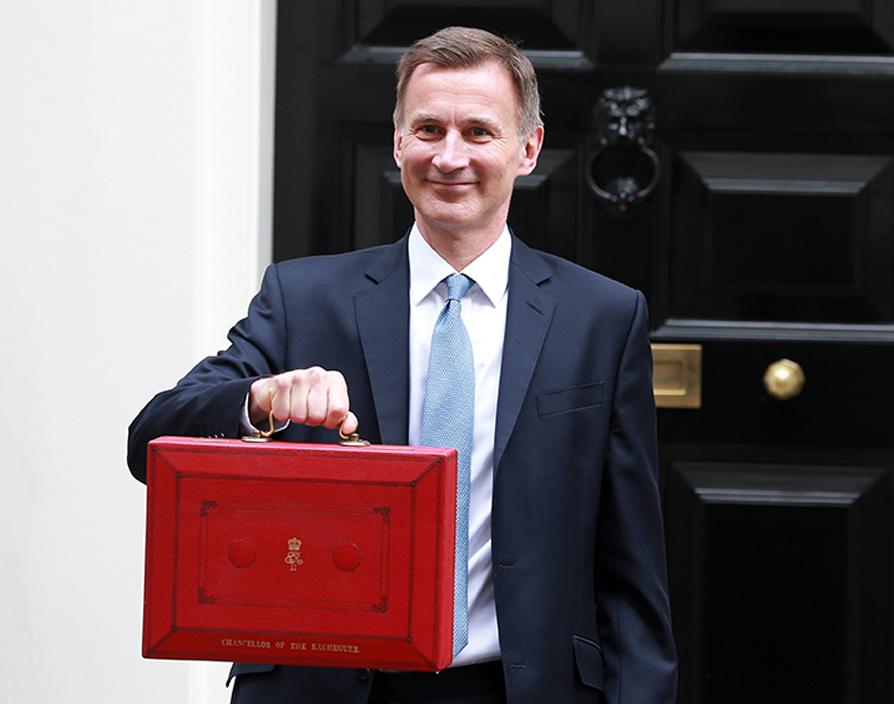The Chancellor spoke in front of the House of Commons on Wednesday afternoon as he set out his tax and spending plans for this year’s budget. As Britain deals with a financial crisis, the aftermath of the pandemic, a labour shortage and the ongoing Ukraine war, how will this year’s budget affect SMEs?
With some positive news, Jeremy Hunt said inflation is expected to fall below the government’s 2% target in “just a few months time”, down from 4% in January. “Nearly a whole year earlier than forecast in the autumn statement,” he adds. This is optimistic for the economy, with the Bank of England’s long-term target to keep inflation at 2%. This figure is down sharply from its peak of 11.1% in October 2022, as food and energy prices are easing up. The Office for Budget Responsibility predicts the UK economy to grow by 0.8% this year and 1.9% next year.
Millions of SMEs across the UK will benefit from a series of new measures announced today. The threshold at which small businesses must register to pay VAT will be raised from £85,000 to £90,000 from April this year, with the Chancellor saying it would help “tens of thousands of businesses”. Commenting on the announcement, Martin Blanche, Head of Indirect Tax at PwC said: “The increase in the VAT registration threshold (which has been frozen since 2017) from £85k to £90k will be welcomed by many small businesses up and down the UK as some will no longer need to register for and charge VAT.
“The overall impact will be relatively modest, as it will only affect businesses with revenues between £85k and £90k per annum. Those who exceed the increased threshold will still need to register for VAT and comply with UK VAT rules in respect of all their revenue. While this is good news for some, the ‘cliff edge’ effect of the VAT registration threshold still remains for many of the small businesses who may be looking for further support.” In addition, the Covid-era government loan scheme for small businesses will be extended until March 2026, meaning thousands of businesses will continue to get the support they need. Tax reliefs for touring and orchestral productions, which had been due to end in March this year, will be made permanent.
Millions of Britons in the workforce are set to benefit with a cut to National Insurance contributions from 10% to 8%. This change will be applied from 6 April 2024, the start of the new tax year. This follows a cut from 12% to 10% in January. The government will also reduce class 4 self-employed NICs from 9% to 6% and abolish class 2 self-employed NICs. This will save the average worker hundreds per year. The Treasury said the average worker on £35,400 will save more than £900 a year as a result of the cuts.
The freeze on alcohol duty, which had been due to end in August, is set to continue until February next year. Jeremy Hunt has confirmed the government will introduce tax on vaping and cigarettes to raise funds for a 2p cut to National Insurance. “To discourage non-smokers from taking up vaping, we’re today confirming the introduction of an excise duty on vaping products from October 2026 and publishing a consultation on its design,” the Chancellor said on Wednesday. “Because vapes can also play a positive role in helping people quit smoking, we’ll introduce a one-off increase in tobacco duty at the same time to maintain the financial incentive to choose vaping over smoking,” he added.
Despite several measures announced to help SMEs, some business owners aren’t jumping off their seats at the budget announcements. Philip Harrison, Chairman at Harrison, who works with clients in hospitality, said more needs to be done to help hospitality and tourism. He added: “The industry has been calling for systematic change – a cap on business rates, changes to employer National Insurance contributions, and a lower VAT rate for hospitality, leisure and tourism to boost demand, generate revenue and keep prices low. The real question is, why is the industry continuously being ignored. Our government is a one trick pony – making changes which it knows will grab headlines – but when it comes to actually support British businesses, delivering public services, and supporting future growth, change has not been seen today.”
Richard Godmon, Tax Partner at Menzies LLP reiterated a similar concern, saying: “While a further 2p cut to National Insurance contributions is seemingly good news, many still won’t be better off due to the freeze in tax band thresholds. It was disappointing to see no such cut in the NI rate for employer-side National Insurance contributions. This would have been a measure that would have been welcomed by struggling businesses in the retail and hospitality sectors especially.”
Some business owners believe the NI cuts aren’t enough to retain hard-working talent and investors in the UK. Personal allowance and thresholds for higher and additional rates are frozen, and “as wages increase, more people will be pushed into higher-rate tax bands,” Nigel Green, CEO and founder of deVere Group, said. “Against this backdrop of increasing tax burdens, and an economy in a deeper-than-expected technical recession, meaning less investment for businesses and jobs, we expect that there will be a growing number of hard-working people across the country looking for work and life opportunities overseas,” he added. “Being squeezed harder in the UK, it can be reasonably assumed that they will be looking at destinations that offer lower tax liabilities, a lower cost of living, a growing economy, and more career, as well as lifestyle, opportunities.”
Jamie Roberts, Partner at YFM Equity Partners at YFM Partners said smaller businesses were overlooked in today’s budget, and insisted the government place more attention on SMEs as the backbone for Britain’s economy. He added: “This was overlooked by the Chancellor in an Autumn statement which laid out business tax cuts that benefited profitable, asset heavy businesses and overlooked those in the scaling up stage. As a result, it is extremely reassuring to see the importance of scale-ups and growth recognised in today’s announcement and we hope that it is a sign of more to come.
“That being said, we are still waiting for meaningful reform on business rates, which continue to create barriers for businesses and hold back growth. Not only are the current level of business rates placing a burden on individual businesses, but the lack of clarity is making longer-term cost and taxation planning for many businesses extremely challenging.”
Scott Dixon, Managing Director, The Flava People believes more needs to be done to incentivise growth for businesses – particularly SMEs. He said: “There’s no silver bullet when it comes to growth. But what I do know is that we, as a country and our policies, need to incentivise growth. Not just investment for big business, but incentivise productivity, incentivise people getting back to work, and to incentivise businesses to set up shop, sell, and acquire in the UK.”
“Of course, there have been positive changes today,” he added. “The increase in threshold for VAT registration to £90,000 will help every SME. The freeze on fuel duty will help those who have their own vehicle fleets, and the changes to the childcare benefits and National Insurance will, we hope, encourage more people back into the workforce. But as a country we need to go further in order to encourage entrepreneurs and business leaders so go further and invest more. Reduction in corporate tax, or capital gains tax for businesses, would have gone a long way to help SMEs, giving people the space and the incentive to invest and scale in the UK.”
Share via:








































